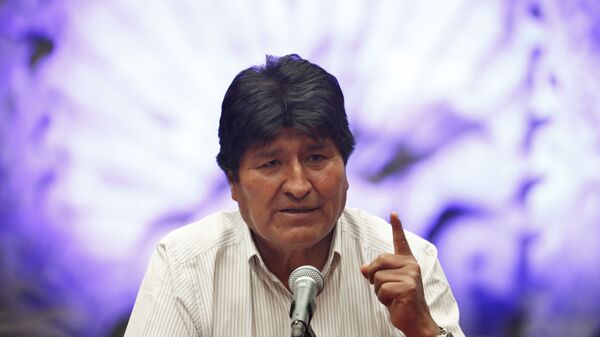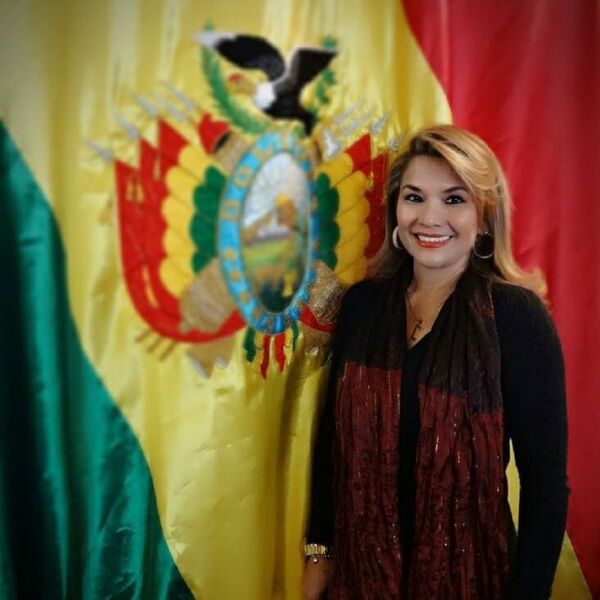"We were prepared to step back from our triumph ... for the sake of holding a new election under a new composition of the Supreme Electoral Tribunal. But they insisted on that Evo must leave. I left ... Yet, the violence in the country continues, so it is not a solution", Morales said in response to a question whether he planned to participate in the next presidential election.
Morales, who urges people to cease confrontation and violence in almost all his speeches, claims that many individuals are openly prosecuted in Bolivia right now for objecting to the recent development.
"Prosecution targets not only ministers but also journalists ... professionals, intellectuals, and athletes", the ex-Bolivian leader said.
At an extraordinary parliamentary session that was supposed to officiate the resignation of Morales, Bolivian opposition lawmaker Jeanine Anez proclaimed herself interim president. Since the session was held in the absence of the MAS lawmakers, which are the majority in Bolivia’s Legislative Assembly, the necessary quorum was not reached.
About 20 lawmakers and officials from Morales's ruling party Movement for Socialism (MAS) also found refuge in the Mexican embassy in La Paz. Mexican President Andres Manuel Lopez Obrador said the Mexican Foreign Ministry would handle their relocation.
On 20 October, Morales claimed victory in the first round of the presidential election that would launch his fourth presidential term. His key rival, Carlos Mesa, rejected the results. Soon after, protests erupted across the nation, and the Bolivian armed forces urged Morales to resign to sustain order and stability in the country. Morales stepped down on Sunday and left for Mexico, which granted him political asylum.



